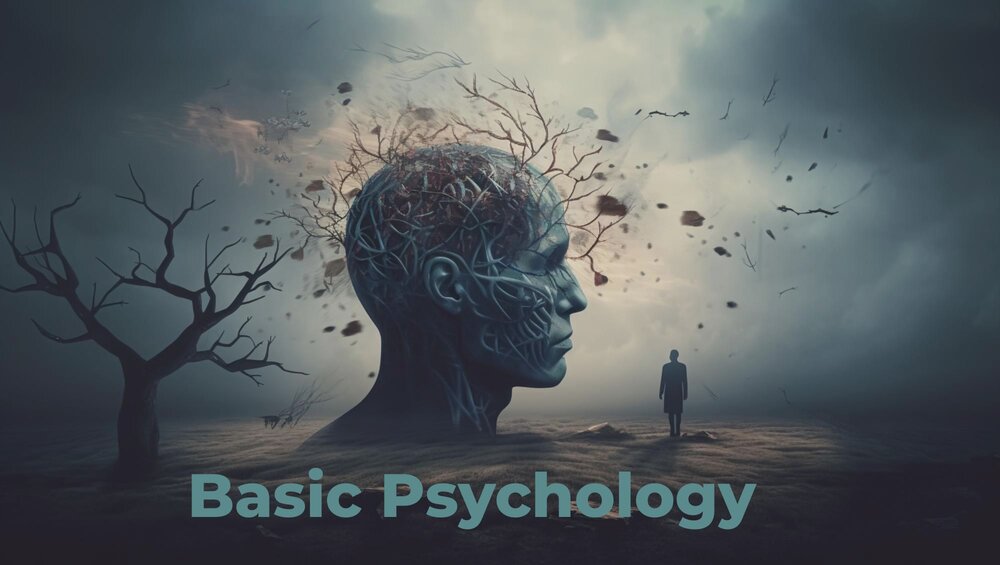Table of Contents
ToggleThe basics of psychology

Introduction
Psychology is about studying how people think and act. In this article, we explore the big picture of psychology, from its start to today, showing why it’s important for understanding how humans behave.
I. Definition and Scope of Psychology
Overview of the Discipline Psychology is like a detective investigating the mind and actions of people. It looks at many things, from thoughts to emotions and how we interact with others.
Evolution of Psychology as a Scientific Field Long ago, people thought about the mind, but psychology became a real science in the late 1800s. Scientists like Wilhelm Wundt started labs to learn more about how our minds work.
II. Historical Perspectives of psychology
Psychology’s journey through time shows how we’ve explored the human mind and behavior. Think ancient Greece, where philosophers like Plato and Aristotle started asking questions about the mind and soul. But it wasn’t until the late 1800s that psychology became a formal thing.
First up was Wilhelm Wundt, who kicked off structuralism in the 1870s, wanting to break down consciousness into basic elements. Then came William James, leading the charge for functionalism, focusing on how our minds help us adapt.
In the early 1900s, Sigmund Freud brought psychoanalysis into play, diving deep into the unconscious mind and childhood’s role in shaping us. At the same time, behaviorism (thanks to folks like John B. Watson and B.F. Skinner) zoomed in on observable behaviors, caring more about what’s outside than inside the mind.
The mid-1900s introduced humanistic psychology, with Abraham Maslow and Carl Rogers championing personal growth and experience. The 1950s and 1960s ushered in cognitive psychology, spotlighting mental processes like memory and problem-solving.
Fast forward to today, and psychology teams up with neuroscience, genetics, and culture studies. Positive psychology, a newer player, focuses on our strengths and well-being. Each psychological era brings something unique, keeping up with the ever-changing world of human thoughts and actions.
III. Contemporary Approaches of psychology
Behaviorism Behaviorism looks at what we do that others can see. It helps us understand how our surroundings affect our actions.
Cognitive Psychology Cognitive psychology studies how we think, like remembering things or solving problems. It changed our view of psychology by focusing on what happens inside our minds.
IV. Biological Basis of Behavior of psychology
Neurobiology and Psychology Scientists found out that our brains and chemicals in our bodies affect how we feel and act. It’s like understanding the control center of our actions.
V. Developmental Psychology
Lifespan Development Developmental psychology looks at how we grow up and change. It covers everything from being a baby to getting old.
VI. Abnormal Psychology
Mental Disorders Abnormal psychology studies mental problems, how to name them, and how to help people who have them.
VII. Social Psychology
Group Dynamics Social psychology explores how we act when we’re with others. It helps us understand why we sometimes follow what others do or think.
VIII. Applied Psychology
Clinical Psychology Clinical psychologists use what they know to help people with mental issues. They talk to people and use different methods to make them feel better.
Industrial-Organizational Psychology In companies, psychologists help make workers happier and work better together.
IX. Research Methods in Psychology
Experimental Design Psychologists use different ways to study people. They do experiments, ask questions, and watch to learn more. They also make sure it’s fair and right.
X. The Future of Psychology
Emerging Trends The future of psychology will see more use of technology and working with other sciences. This will help us learn even more about ourselves.
XI. Conclusion
In the end, psychology is like a guidebook to understand people. From the past to the future, it helps us see what makes us human and why we do the things we do. As we keep learning, psychology will keep being a key to unlocking the secrets of being human.
Abdullah Al Mamun
B.Sc (Honors) Psychology, M;A (University of Rajshahi)
Ex lecturer
Department of Psychology
Binodpur College, Shibganj, Bangladesh.
References:
American Psychological Association. (n.d.). About APA. https://www.apa.org/about
Cherry, K. (2022). Theories of Psychology. Verywell Mind. https://www.verywellmind.com/theories-of-psychology-2795712
McLeod, S. (2020). Simply Psychology. https://www.simplypsychology.org/
Plante, T. G. (2011). Contemporary Clinical Psychology (3rd ed.). Wiley.
Saul McLeod. (2020). Social Psychology. Simply Psychology. https://www.simplypsychology.org/social-psychology.html
Skinner, B. F. (1953). Science and Human Behavior. Free Press.
APA Style. (n.d.). References Examples for Online Sources. https://apastyle.apa.org/style-grammar-guidelines/references/examples/online-sources
Image credit: Image by atlascompany on Freepic
